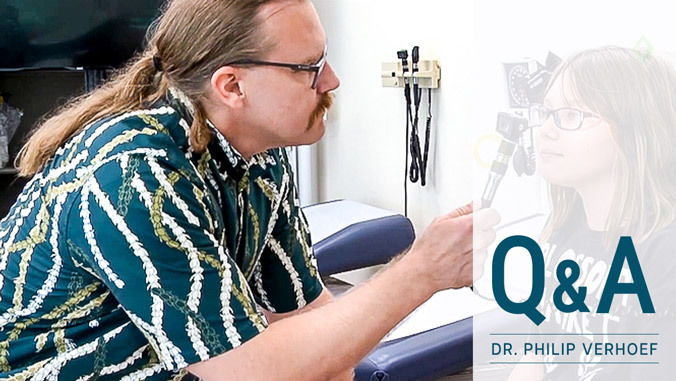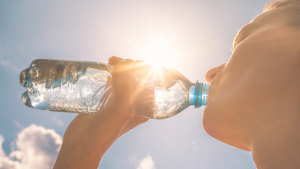
High temperatures across Hawaiʻi and the U.S. significantly increase the risk of heat-related illnesses such as heat exhaustion and heat stroke, which can be life threatening.
Philip Verhoef, a clinical assistant professor of medicine at the University of Hawaiʻi at Mānoa John A. Burns School of Medicine and an intensive care physician at Kaiser Foundation Hospital, shares the dangers of heat stroke, how to identify early warning signs, and the best practices to stay cool and safe in scorching weather.
What is heat exhaustion vs. heat stroke?

Heat exhaustion occurs when your body is starting to struggle with regulating its temperature, often due to dehydration. The early signs include symptoms like nausea, weakness, muscle aches, heavy sweating and dizziness. Heat exhaustion can escalate to heat stroke if not addressed.
Heat stroke is more severe and includes symptoms such as confusion, fainting, lack of sweating despite the heat, a rapid pulse, and a high body temperature above 104°F. Unlike heat exhaustion, heat stroke results in the body being unable to cool itself off, leading to potential brain damage and other serious health issues.
What should you do if you start experiencing symptoms?
If someone is experiencing early signs of heat exhaustion, it’s crucial to move them to a cooler place, hydrate them with water, and use other cooling methods. If they show signs of heat stroke, seek emergency medical help immediately, as it is a life-threatening condition.
What steps can you take to prevent heat exhaustion and heat stroke?

- Stay Hydrated: Drink plenty of water regularly, especially when outdoors. At least a quart of water per hour or 1 to 2 cups every 15 minutes.
- Avoid Peak Heat: Limit outdoor activities during the hottest parts of the day (usually between 10 a.m. and 4 p.m.).
- Take Breaks: Rest in cool, shaded or air-conditioned areas frequently.
- Wear Appropriate Clothing: Choose light, loose-fitting and breathable clothes.
- Use Sunscreen: Protect your skin from sunburn, which can affect the body’s ability to cool itself.
- Monitor Physical Activity: Reduce strenuous activities and the time you spend in extreme heat. Take it easy if you start feeling any symptoms of heat-related illness.
- Stay Informed: Be aware of the heat index and weather forecasts to plan activities accordingly.
What is the heat index, and should I be worried about it?
The heat index combines both the temperature and the humidity to give you a sense of what it “feels” like to be outside. This is important because when both the temperature and the humidity is high, the body is unable to effectively cool itself off with perspiration, and it can feel much warmer than just the temperature would indicate. And when the heat index is high, the risk of heat exhaustion and heat stroke goes up significantly, and you have to be extra careful.

